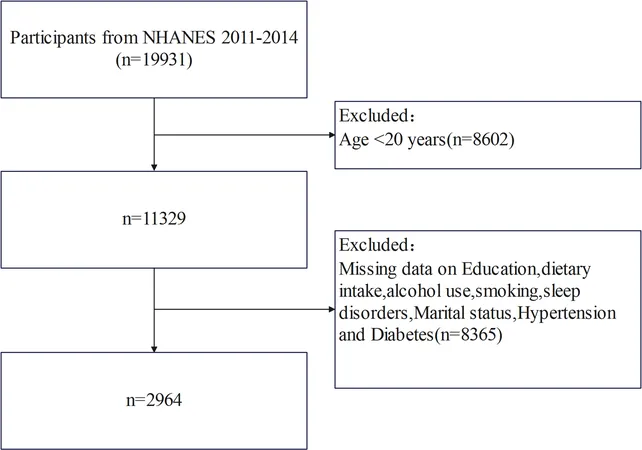
Is Sleep the Key to Preventing Alzheimer’s? Insights from Andrew Varga, MD
2025-06-11
Author: Jia
Unlocking the Mysteries of Brain Cleansing
The concept of brain cleansing may sound like science fiction, but it actually refers to a critical process that occurs during sleep, where the brain clears out harmful metabolic waste and neurotoxic proteins. This vital function relies on the glymphatic system, which uses cerebrospinal fluid to flush out substances like beta-amyloid and tau, notorious culprits linked to Alzheimer's disease (AD).
The Great Debate at the 2025 SLEEP Annual Meeting
At the recent SLEEP Annual Meeting in Seattle, experts Jeffrey Iliff, PhD, and Andrew Varga, MD, PhD, faced off in a riveting debate: Does a failure of brain cleansing during sleep lead to Alzheimer’s? Varga, a distinguished neuroscientist from Mount Sinai, spoke candidly about his fascination with this topic, highlighting the urgent need for clearer insights into how sleep affects brain health.
The Sleep-Wake Battle: Which Is More Crucial?
During his talk, Varga explored a provocative question: Is brain clearance primarily dependent on sleep, or does wakefulness play a significant role? Traditional views suggest that during deep sleep, neurons shrink, creating more space for waste removal. However, recent studies hint that wakefulness might be even more crucial for this process, stirring up a lively debate in the scientific community.
Measuring Brain Cleansing: Challenges and Innovations
So, how do we measure brain cleansing in humans? While studies in rodents have demonstrated clear methods for assessing this, human diagnostics are primarily indirect. Techniques such as advanced imaging and invasive methods like lumbar punctures offer some insights, but researchers are actively working on more non-invasive options that may soon revolutionize how we assess glymphatic function.
Can We Boost Glymphatic Function?
Absolutely! Varga emphasizes that focusing on quality sleep is paramount. Identifying and addressing sleep disorders such as sleep apnea is essential. Beyond that, potential interventions range from pharmacological approaches that aim to enhance deep sleep to innovative technologies, including stimulating brain waves with sound cues or even rocking beds.
Unanswered Questions and Future Research Directions
While we have a grasp on the link between sleep disruption and Alzheimer’s, many questions remain. For instance, how directly does dysfunction in the glymphatic system contribute to the buildup of proteins associated with Alzheimer's? Other theories suggest that persistent neural activity during disrupted sleep could spur the production of tau protein. Moreover, the interplay between sleep, inflammation, and immunity adds another layer of complexity.
In conclusion, while the mechanisms behind the glymphatic system and Alzheimer’s connection require further exploration, a consensus is forming: Sleep is not just a passive state but a dynamic process that could hold the key to preventing neurodegenerative diseases like Alzheimer's.




 Brasil (PT)
Brasil (PT)
 Canada (EN)
Canada (EN)
 Chile (ES)
Chile (ES)
 Česko (CS)
Česko (CS)
 대한민국 (KO)
대한민국 (KO)
 España (ES)
España (ES)
 France (FR)
France (FR)
 Hong Kong (EN)
Hong Kong (EN)
 Italia (IT)
Italia (IT)
 日本 (JA)
日本 (JA)
 Magyarország (HU)
Magyarország (HU)
 Norge (NO)
Norge (NO)
 Polska (PL)
Polska (PL)
 Schweiz (DE)
Schweiz (DE)
 Singapore (EN)
Singapore (EN)
 Sverige (SV)
Sverige (SV)
 Suomi (FI)
Suomi (FI)
 Türkiye (TR)
Türkiye (TR)
 الإمارات العربية المتحدة (AR)
الإمارات العربية المتحدة (AR)